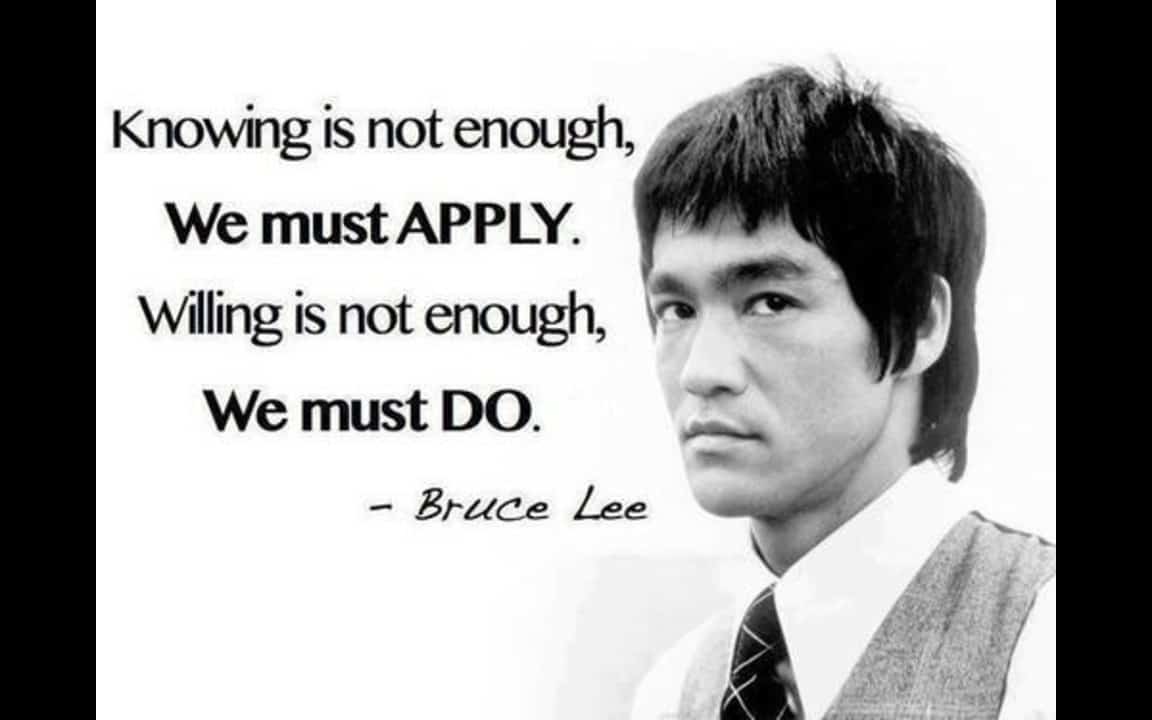For someone who wants to break into the entrepreneurial scene, it can be difficult to know where to start.
There are 10,000 skills you need to develop, you need to build a network and start to create a reputation, and you need to find a means to share your vision with others. It can be truly overwhelming. But someone in this position has a few valuable advantages. You have a great deal of time and energy to invest, and you are hungry to learn.
Entrepreneurs who are further along in their journey often have a different set of problems. They’ve gained some traction, they have honed key skills and set a trajectory for growth, but their personal resources have been tapped out. Their time and attention have been spread thin. Perhaps they’ve outsourced repetitive tasks, but there’s valuable work that needs to be done that can’t be outsourced. The talent they need to get to the next level does not come cheap.
Both the entrepreneur and the newcomer have value to offer each other. An opportunity to develop valuable skills, a network, and an understanding of how to run a growing business, in exchange for hard work and a relatively low wage. This is called an apprenticeship.
An apprenticeship is nothing new; it’s the oldest form of education there is. Since the dawn of skilled work such as pottery, blacksmithing, music, or any other practice that is difficult to master, apprenticeships have been an ideal avenue to pass on a skill and allow both the apprentice and the mentor to continue to develop themselves.
The Apprenticeship Renaissance
In the past century, apprenticeships have been largely replaced by formal education, but as entrepreneurship is becoming increasingly accessible and popular, apprenticeships have been undergoing a renaissance. The skills that entrepreneurs are looking for are tough to teach in a classroom, after all, and are better learned by doing.
More and more entrepreneurs are in need of young apprentices to help them manage their growing businesses and manage critical areas that are too complex to outsource and too expensive to hire out.
This is an incredible opportunity for anyone interested in becoming an entrepreneur and supplementing, or sometimes even replacing, a formal education.
The practical experience, relationships and skills you develop during an apprenticeship can completely change the direction of your life. Working side by side with a successful entrepreneur can teach you subtle yet valuable lessons that you can’t pick up in a classroom.
In an apprenticeship, you also have the opportunity to direct your learning and responsibilities to areas that interest you more. As you become more competent and efficient in managing your work, you’ll be able to choose the projects that interest you and develop a skillset that plays to your natural strengths and personality.
The work you do as an apprentice can also be the seeds for your own business. It’s likely that whatever problems you solve for the business you apprentice with are problems that many other businesses are facing and would happily pay for.
Who is an Apprenticeship for?
Many people enter apprenticeships hoping for daily coaching or to have the entrepreneur they are working for transfer all of their knowledge to them.
More often, the case is that you are responsible for directing your own learning. Entrepreneurs are making these hires not out of the kindness of their hearts, but because they need help. That means there are some key qualities that entrepreneurs want to see in their apprentices.

Future entrepreneurs – Apprenticeships are ideal for someone who wants to learn how a business is run and eventually start their own.
Self-starters – Apprenticeships don’t offer clear-cut boundaries, step-by-step instructions, or unlimited guidance and coaching from an entrepreneur. You need to be able to take action with very little instruction and find ways to solve problems on your own. If you are someone who aspires to work in a large corporation, bank or government organization, an apprenticeship probably won’t be a good fit.
Fast learners – Entrepreneurs don’t bring on apprentices for simple tasks; you need to be able to make difficult decisions with limited information. You need to develop a deep understanding of the business, its internal culture and processes, and the market you are working in. There’s a lot of information to take in. The faster you can learn it and leverage it, the more valuable you will be.
Hard workers – An apprenticeship is a very demanding role that constantly pushes your limits. It’s not for someone just looking to punch the clock and get a paycheck.
The Purpose of an Apprenticeship
To understand the purpose of an apprenticeship, it’s best to make it clear what exactly is being exchanged between the apprentice and the mentor.
The apprentice is offering their time and problem-solving and is short on skills and experience. The mentor is offering a platform to develop skills and experience and is short on time and problem-solving.
When entering an apprenticeship, here are some common goals you’ll want to pursue:
Learn a skill – The skills that you develop helping your mentor and their business will be useful for any future projects you work on. You want to find a core skill you can develop that is fulfilling for you and in high demand.
Create processes – In your apprenticeship, you will be solving many problems. But to make a lasting impact, you need to be sure that these problems will never need to be solved again. To do that, you need to take meticulous notes on your work and identify repeatable processes.
Every task that you do more than once can have a process written for it. Many of these processes can be outsourced or delegated, which frees up more time and energy for you to solve new problems.
Bonus: For a guide on creating processes for a business, check out: The practical guide to creating bulletproof processes to scale your business.
Build a network – You won’t be working in isolation during your apprenticeship. One of the most important aspects of growing a business is developing a network. It’s likely the work you do will give you countless opportunities to connect with interesting people. If you take the time to nurture the relationship, every connection you make can unfold in ways that you can’t imagine. Take every opportunity you can to add value to others, and I guarantee you will be rewarded in the future.
When to Do an Apprenticeship
You need to be at a point in your life when you can dedicate at least a year to an apprenticeship. Your first few months of work will be more of an investment into you; it takes time and energy to learn and understand the tasks you’ll need to complete, and begin to grasp the difficult skills that they require. Often you will be asked to relocate for the first few months to work alongside the entrepreneur and get immersed in the culture and values of their business. This could even mean moving somewhere like the Philippines or Vietnam for a few months.
You need to be in a position where your apprenticeship can be the main focus of your time and energy. It can be difficult to balance this with another job, school, or a business of your own.
Have Something Going Yourself
You should see an apprenticeship as a boost in your journey, not as a starting point. You can’t expect to get an apprenticeship with a high-profile entrepreneur or a growing business if you don’t have anything going on yourself.
It will be easier to find apprenticeships and have opportunities find you if you already have a project started. Whether it’s a personal brand, a niche site or a consulting service, you should have something that shows that you are already on the path to entrepreneurship and are developing skills and experience that are in-demand.
With your own project, you’ll have a platform to engage with entrepreneurs. This project will also give you context for the kind of work you enjoy doing and what skills you would want to develop in an apprenticeship.
There’s also nothing better to list on an application for an apprenticeship than a thriving project that shows the quality of your work and proves that you know how to get results. Even if your project is completely unrelated to the business you are working for, it demonstrates you have the qualities necessary to succeed in your apprenticeship.
How to Find an Apprenticeship
First it’s important to understand what kinds of businesses are most open to apprenticeships. You’re going to want to find a business that already has:
- Traction – Look for businesses that have already established a good fit for their product, have customers and rapid growth. They should have a good reputation and a strong brand already. Avoid any businesses that don’t have a validated idea or track record that are looking for cheap labor to help get their product off the ground.
- Heavy online presence – You want to work for a business that operates almost entirely online. Not just their marketing, but their operations as well. That means they rely on technology and outsourcing to keep their overhead costs low.
- Remote work friendly – Though you may spend your first few months working in-person with a mentor, most apprenticeships are remote. Look for companies in remote work hot spots like Chiang Mai, Thailand; Ho Chi Minh City, Vietnam; Barcelona, Spain and more. These cities are popular with location independent businesses and have growing entrepreneurial communities, many of which are open to hiring apprentices.
Many startups and small businesses announce job postings for apprentice-style positions on their business’s blogs. These postings spread like wildfire on social media.
Here’s a few examples of what an apprentice job posting would look like:
https://empireflippers.com/content-marketing-hiring-post/
https://www.amztracker.com/blog/work-with-us/
http://wpcurve.com/were-hiring/
The best strategy to keep an eye out for opportunities is to identify businesses that interest you or have values that resonate with you, and begin to engage with them on their blogs and social media. Start to build relationships by leaving thoughtful comments or sharing their content. Remember to focus on adding value: You can let people know you are looking for an apprenticeship opportunity, but don’t let that be the only thing you say.
Another good strategy is to find communities and forums where entrepreneurs you admire spend time. All of the cities I mentioned above have active groups and communities on Facebook, Slack, and classic forums that are easy to find and sometimes free to enter.
There are also services like Get Apprenticeship that help connect future apprentices with opportunities. It’s free to sign up and be notified of new postings.
Applying for an Apprenticeship
As you can imagine, applying for such a position is a little different than your average online form or resume/cover letter combo. Once you’ve identified the business you’re interested in working for, follow these steps:
Research the business and the person who is hiring – Your eventual application should demonstrate an understanding of their business and the job you’re expected to do. You should gather as much information as you can about their business, the market they’re in and the problem you are going to solve for them. You can also research the personal blogs or social media of the person who is hiring and see what their personal interests are. Perhaps you both love the book Dune or have a guilty pleasure for 80s hair metal bands. Knowing this kind of thing will give you a chance to make a more personal connection.
Connect – Your application submission should not be the first time they see your name. You should be connecting with the entrepreneur on their blog and social media. Start engaging with them as early as possible. At the very least, send them a tweet letting them know you are applying.
Focus on what you can do for them – Far too many applicants focus on what this opportunity can do for them or what they want from the apprenticeship. This is a death sentence for your application. Always focus on the value you can add to the business and how you can make the life of the entrepreneur easier with your help. As you write your application, search for every sentience where you use the word “I” and try to find a way to change it to “You.”
Do all the optionals – Most applications have some optional things you can add to your application. You should always do these if possible. When you’re competing against dozens if not hundreds of applicants, you’ll need every edge you can get. Most commonly, this is a short video where you can introduce yourself and explain why you’re a good fit for the job.
Design a landing page for yourself – Often applications are collected on a form and sent to a spreadsheet. It’s hard to stand out when someone is reading your application inside a tiny cell surrounded by others cells filled with text. By creating a landing page, you’re able to show off more of your unique personality and some of your talents. Keep it brief, but give them plenty of opportunities to dig deeper if they want. Include links to videos, case studies of your work, projects you have created, testimonials, and images.
Get a mutual connection to recommend you – If you’ve found anyone who is a mutual friend or contact for you and the person who’s hiring, see if you can get a recommendation from them. A recommendation from a personal connection goes much farther in building trust and interest in your application. It’s best if the person recommending has worked closely with you on a project before.
Better yet, you can even have this person submit your application on your behalf. This is a unique and rarely used approach that will make you stand out from the crowd.
Apprenticeship Case Studies
So what results can you expect from an apprenticeship? The skills and connections you develop can take you in many different directions. If you’re able to produce great results for the entrepreneur you work with, you’ll find plenty of opportunities to choose from. Here’s a few short case studies from apprentices who have all made the most of their experiences:
Vincent Nguyen – Vincent was the top choice for Empire Flippers because of his track record with his personal brand Self Stairway, and a stellar video he submitted with his application. The video was a montage of various different entrepreneurs and thought leaders, many of which Justin Cooke, the co-founder of Empire Flippers, knew personally and admired. This was the best application video Justin had ever seen.
Vincent started working on conversion optimization on the Empire Flippers site and focused on getting more opt-ins to their email list. He worked hard and would experiment with different ways to drive growth. Vincent’s responsibilities increased over time, and he eventually became the director of marketing for the company. One of the primary tools he was using to drive the growth of the business was Facebook Ads.
Vincent took the skills he developed in conversion optimization and Facebook ads and created a marketing service called Growth Ninja. The Empire Flippers were one of his first customers, and he was able to offer the same help to many other businesses. Growth Ninja’s unique performance-based pricing has made it a popular choice for many successful brands.
Will Boucek – Will was hired by Firegang, a marketing agency for dentists.
Will started as the sole marketing apprentice; he was responsible for driving the growth of a company that was making $850K annually. He was given a small amount of guidance early on but was expected to take the lead in finding new channels to grow Firegang.
With every new channel that Will experimented with, he created processes and strategies to manage it and then would hire a new apprentice to delegate the work to. He currently leads a team of six marketers, and the company has nearly quadrupled in revenue since he started.
Taylor Pearson – Taylor Pearson was hired to manage the marketing for The Portable Bar Company, a B2B ecommerce site. He refined his skills in customer research, content marketing, conversion optimization, copywriting, and SEO. His focused work lead to 527% growth in monthly revenue after 18 months.
During this time, Taylor immersed himself in the study of entrepreneurship, reading as many books and blogs as possible and building relationships with hundreds of entrepreneurs around the world. He began to collect his thoughts on his personal brand TaylorPearson.me and build a small following of his own.
After working with The Portable Bar Company, Taylor had a valuable skillset and network that he used to grow his personal personal brand and launch a bestselling book, The End Of Jobs.
Conclusion
You don’t have to be young to do an apprenticeship, but you do need to be willing to dedicate your time and energy to growing a business and learning skills. The demand for competent apprentices is growing every day, and there are huge opportunities out there for those who are willing to work hard and get results.




















